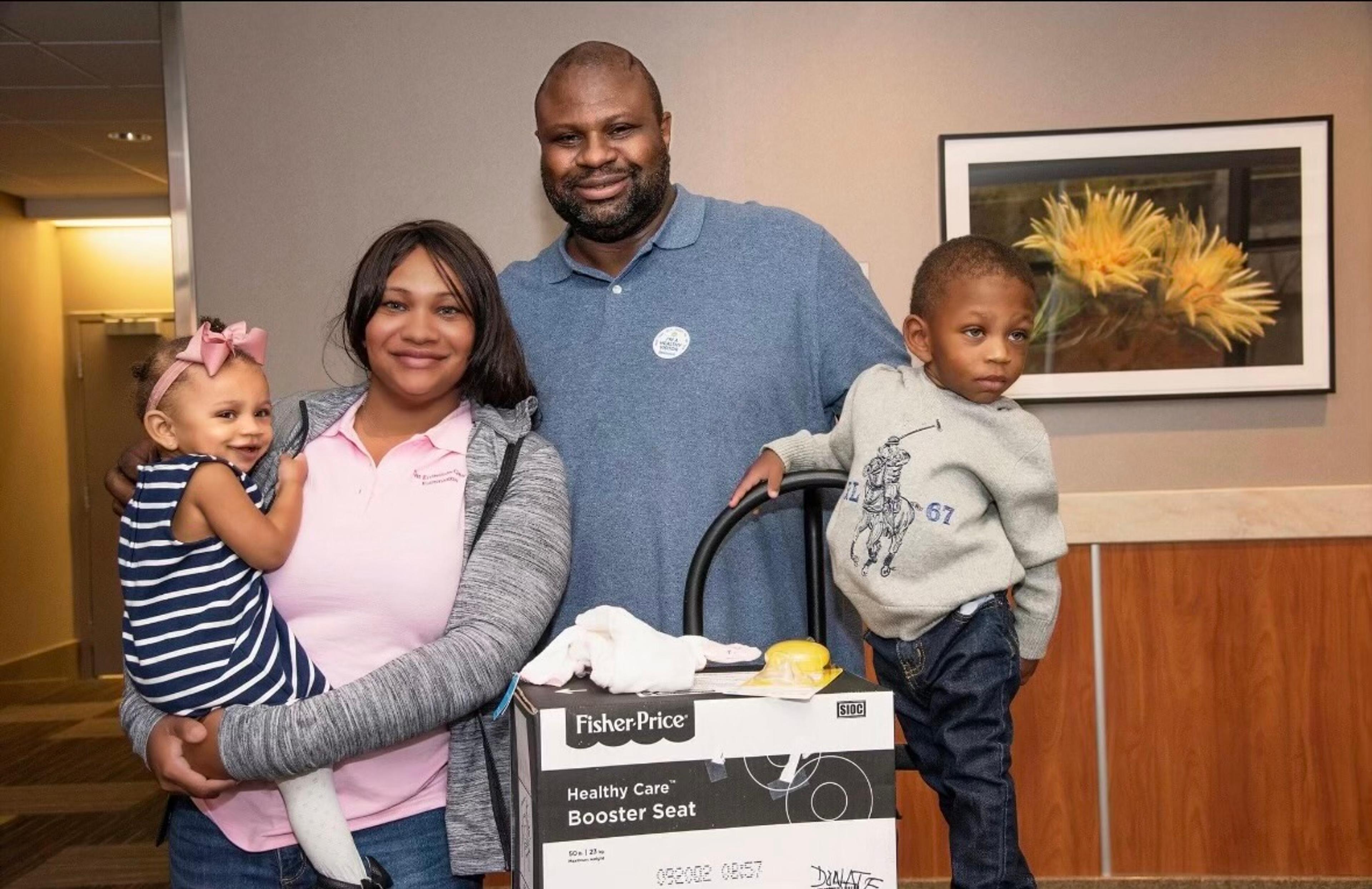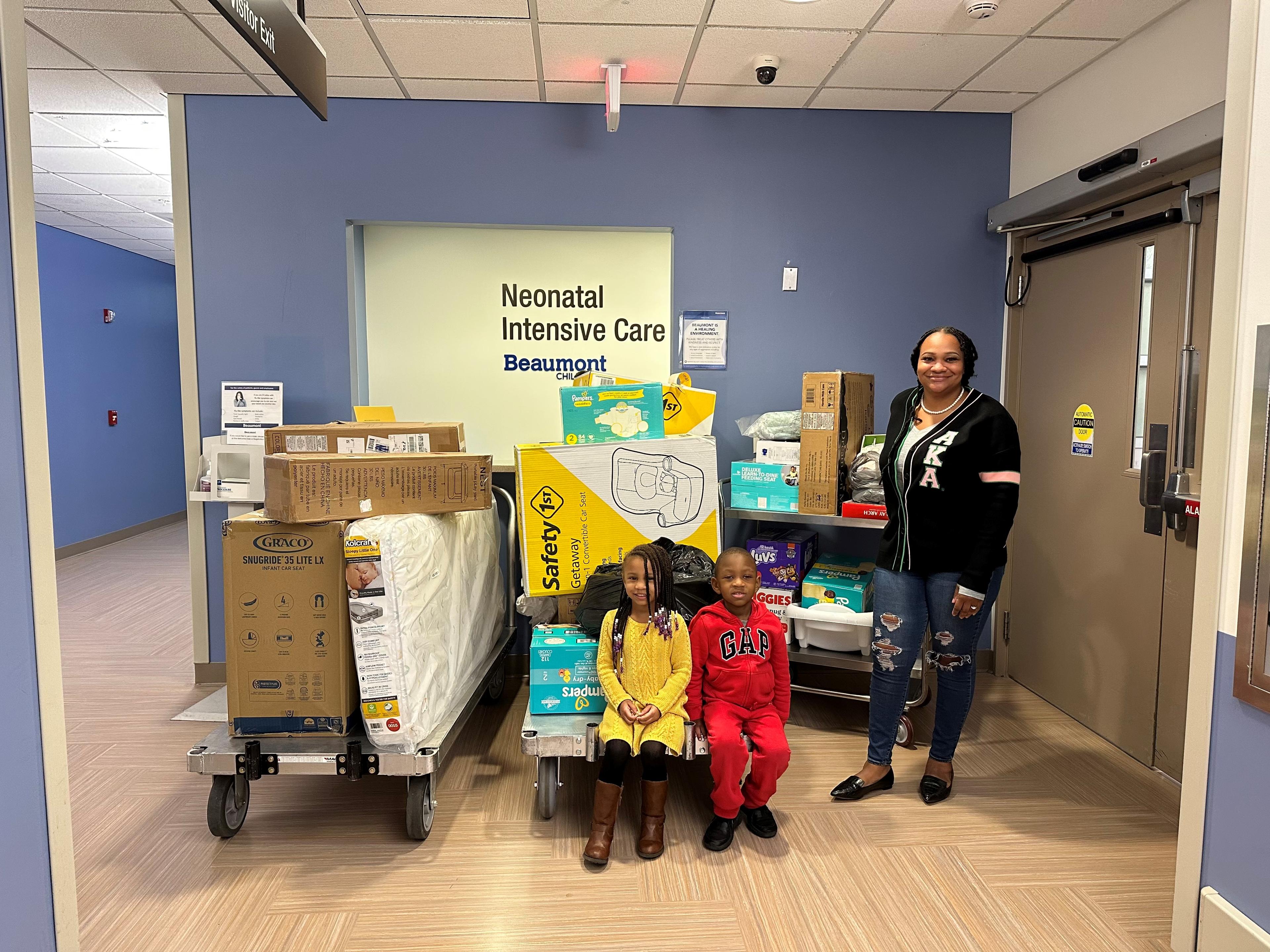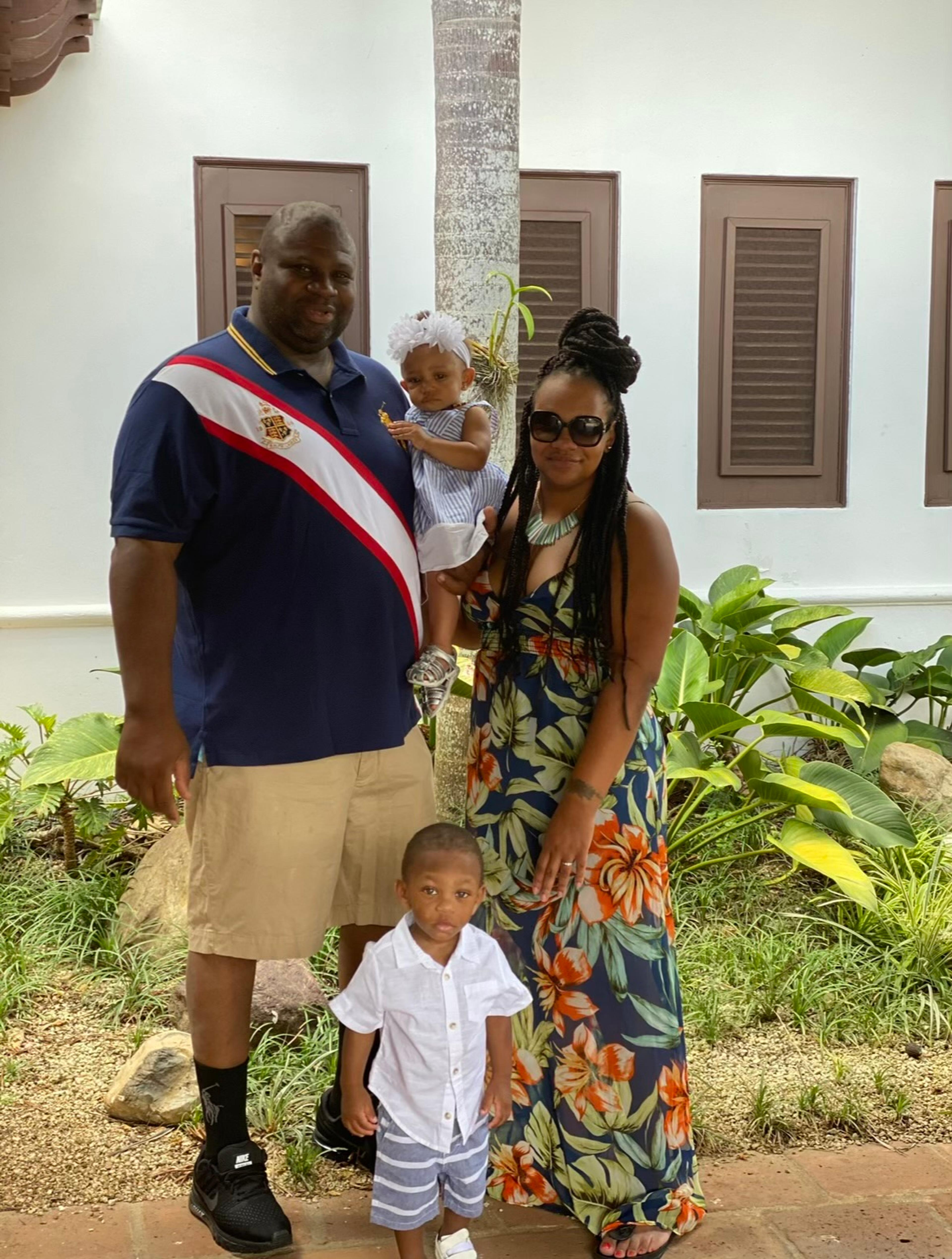Health and Wellness,Maternal Health,Family Health,Member Stories,Whole Person Health ,Prematurity Awareness Month
Prematurity Awareness Month: Michigan Mom of Twins Honors the Daughter She Lost
Amy Barczy
| 6 min read
Amy Barczy is a former brand journalist who authored content at Blue Cross Blue Shield of Michigan. Prior to her time at Blue Cross from 2019-2024, she was a statewide news reporter for MLive.com. She has a decade of storytelling experience in local news media markets including Lansing, Grand Rapids, Holland, Ann Arbor and Port Huron.

Latasha Davidson is turning a tragedy into a legacy of love and service.
Five years ago, Davidson had an emergency cesarean section to deliver her twin babies early at 30 weeks. Her son Cain survived, but her daughter Ellington Grace lived for only one day.
The experience forever changed Davidson and her family: after donating gifts to the NICU each year on Ellington’s birthday as an act of remembrance, Davidson formed a charity in Ellington’s memory to continue that service for families going through similar situations.
The charity – the Ellington Grace Foundation – collects baby supplies like diapers, wipes, bassinets, car seats and clothes, as well as gift cars, and donates them to the neonatal unit at Corewell Health’s Beaumont Hospital, Royal Oak where Cain and Ellington received care.
It’s the same hospital where Davidson gave birth to a healthy, 9-lb. baby girl on the same day of Ellington’s death – Oct. 29 – exactly one year later.
“Now this day will forever be bittersweet,” said Davidson, who is a Blue Cross Blue Shield of Michigan member and lives in Clinton Township. “It’s a day I have to cry, but also celebrate. I’ve turned it into a day of service.”

One in 10
One in 10 babies in the U.S. are born preterm – which means a baby is born early before the 37th week of a typical 40-week-long pregnancy.
“Preemie” babies often face health challenges in the first days and weeks of their lives, as they have not been able to fully finish growing and developing inside the womb. They are often smaller and have less body fat – and their organs may not be developed enough to fully support themselves. Preterm babies may need help breathing, feeding, fighting infections and regulating their body temperature – and may need the help from the highly trained staff at a hospital’s neonatal intensive care unit (NICU).
Many times, premature births happen even when there are no known risk factors. However, carrying multiple babies, like twins, does raise the risk of a premature birth.

Davidson said she didn’t experience any issues with her first two pregnancies and carried them both full term around a decade ago. When she got pregnant with the twins in 2018, she and her husband, Tommy Davidson, quickly had to learn how to manage the pregnancy complications that started at 13 weeks.
“This was the first time having complications in pregnancy,” Davidson said. “I had to immediately look up resources, advocate for myself and go on bed rest.”
The twins were fraternal, and they each had their own amniotic sacs and placentas. Ellington was smaller and had less fluid around her in the womb – and Davidson said she wanted answers.
“I had an incredible medical team that did everything that needed to be done. They really helped get me to the end,” Davidson said. “I needed to know answers: I wanted to get a reason why she was smaller.”
Davidson eventually learned that when the babies were first developing in the womb, Ellington had a blood clot that prevented her placenta from fully attaching to the uterine wall. Her little body was never able to grow as it should, and her lungs stopped developing around week 17.
“It was very difficult,” Davidson said of how the pregnancy went.
She was on bed rest for months, with three to four appointments a week. She had placenta previa – a condition which meant a placenta lies low in the uterus and covers the cervical opening – and Davidson had to take many precautions.
Rushed to the NICU
At 30 weeks, an emergency C-section was needed to save Davidson’s life as well as that of her babies. One of the babies’ placenta was separating from the uterus – called placental abruption. It’s a serious condition that can cause life-threatening complications for the mother and for a baby.
“Both babies came into the world not making a sound,” Davidson said. “They rushed them to the NICU.”
Three hours after her C-section surgery, Davidson still hadn’t been able to hold her babies – and she had just been told Ellington may only have hours to live. Davidson’s own health was not stable: her oxygen levels were low, and the doctors wanted to test her for a pulmonary embolism.
“I was in shock. It was a very difficult experience,” Davidson said of those first hours in the NICU with her twins. “I was in mom mode: I wanted to hold her, hug her and kiss her.”
She told the doctors to bring the tests up to the NICU – because she wasn’t going to waste any of the minutes she had with her daughter.
“I don’t know where I found the strength,” Davidson said.
Davidson got those moments with Ellington before she passed after a day. But after the tragedy of Ellington’s short life, the Davidson family’s time in the NICU was not over: baby Cain needed care for six more weeks. Latasha spent all day, every day in the same NICU room.
“I was anxious. After losing a child, I wanted to have my eyes on him (Cain), and to be holding him,” Latasha said.
After six weeks, the hospital staff wanted to keep Cain in the NICU for one more week – but Latasha couldn’t bear it.
“He was in the room right next to where she had passed. I didn’t want him there another day,” Latasha said.
Cain was able to go home, with the assistance of medical oxygen to help his body and lungs. Managing the oxygen at home – in addition to having a newborn and recovering from her C-section – was a “crash course,” Latasha said.
Cain is now a thriving little boy who just celebrated his fifth birthday.

New life
To the surprise of Davidson and her husband, she was pregnant several months after the birth of the twins – and the emotions felt like a whirlwind.
Davidson found out she was pregnant with a baby girl – and she couldn’t help but think of her baby girl that she had known only for a day. Her due date was the exact same date as the twins’ birthday. Davidson tracked her baby’s growth carefully: she knew she was at a higher risk for having another premature baby. Getting pregnant within six months of a previous pregnancy, as well as a history of premature birth, can raise the risk.
“To find out it was another girl, there were so many emotions,” Davidson said. “I said, I’m going to get her here safe.”
On Oct. 29, 2019, Davidson went to her appointment and said she was concerned about reduced fetal movement – a possible sign that the baby was not doing well. Doctors delivered her baby girl that same day: Kinsley came into the world crying and full of life as a 9-lb. baby. She had a striking resemblance to Ellington: same skin tone, reddish hair and green eyes.

For the Davidson family, honoring Ellington’s memory is an important mission. In 2019, they started the Ellington Grace Foundation to collect donations of supplies for families staying in the NICU.
This year, the Michigan chapter of March of Dimes named them the 2023 Ambassador family. Latasha hopes sharing her story will help other mothers and families navigate their own journeys – and see hope even in the middle of the struggle.
“I wanted people to see what I went through and how I got past that, and to help other mothers,” Davidson said.
Photo credit: Courtesy of Latasha Davidson





